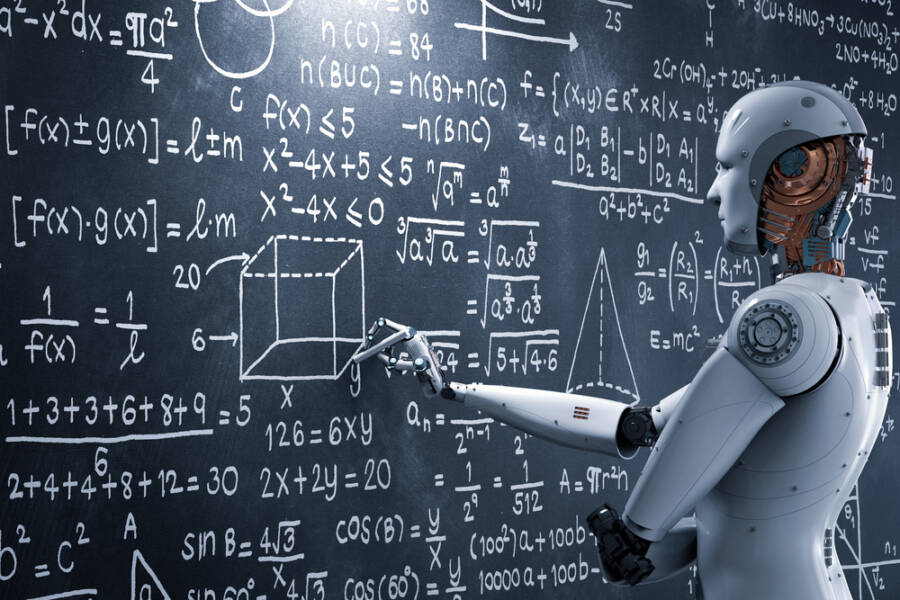The popular image of artificial intelligence has long been one of anthropomorphic super machines who can do everything from run and jump to conduct complex mathematical calculations faster and more accurately than a human. In truth, the real-world AI solutions we have access to today are hardly more sophisticated than computer programs — but in many ways, they are still superior to the average staff member. Business leaders eager to optimize operations should consider the following ways that narrow AI is already outperforming human workers.
AI Finds Information Faster
Humans are notoriously slow at sifting through information. People read and comprehend slowly, and their attention wanders, which means they are likely to miss information of value even when their search is important. In “Lord of the Rings,” Gandalf devotes 17 years to scouring libraries for information about Bilbo Baggins’ magic ring — but if he had an AI program to search for him, he might have identified the threat in a few minutes.
Google’s machine learning AI RankBrain has been shown to understand human queries and deliver high-quality search results with better reliability and much greater speed than humans. The use of RankBrain is a sign that AI tools will soon be embedded into information systems to enhance performance.
AI Analyzes Information Better
In addition to finding data, AI tools can analyze that data with greater accuracy, fewer errors and faster speed. Data analysis is time-consuming work; scientists need to cleanse and normalize the data, develop working algorithms and models and eventually complete the calculations necessary to provide valuable insights that can guide business decision-making. Worst of all, human data professionals can be misguided by various biases, which will lead to poor and ineffective analysis.
Business leaders need to be able to trust the data analysis process to use it appropriately to achieve greater success. Because AI can crunch numbers faster and more effectively, AI analytics will become an essential tool in coming years.
AI Works More Effectively in Deadly Environments
One of the simplest ways AI is better than humans is in assuming the jobs that put human lives at risk. There are many environments where humans cannot travel: outer space, the deep ocean, inside nuclear reactors, into lava flows. Yet, there is ample data to be collected in these environments. Thus, sending AI into these spaces is the smartest and safest choice for humankind as it puts no lives at risk
Business leaders might consider how they can adopt AI solutions to reduce safety risks within their organizations. Dangerous machines, hazardous chemicals and more might be better handled by AI-driven robots, so human workers can be kept safe and whole.
AI Can Translate Languages More Efficiently
Human language is not as systematic as we might hope, which has made it a significant challenge for computers to learn different languages and translate accurately amongst them. Fortunately, AI has improved the ability of machines to process natural human language. The result is a near-instantaneous translation from one language to another. Driven by AI, machine translation could soon enough function as efficiently as the babelfish in “Hitchhiker’s Guide to the Galaxy” or the universal translators in “Star Trek.”
AI Diagnoses Illness With More Accuracy
Most famous for beating human champions in “Jeopardy!” IBM Watson has various real jobs, one of which has been to learn as much as possible about oncology and cancer diagnosis. By sifting through patient medical histories and understanding symptoms (which takes a matter of minutes), IBM Watson can deliver a lung cancer diagnosis with 90 percent accuracy — compared to just 50 percent for human doctors, who must spend about 160 hours researching before they feel comfortable suggesting a cancer diagnosis.
More and more AI tools are being developed to assist physicians in identifying and developing treatment plans for a variety of health concerns. The result could be radically better outcomes for patients and a stronger healthcare system across the board.
AI Can Create Better AI
Despite developing AI for the better part of a century, humans have only succeeded in creating narrow AI, or AI tools that can accomplish a single task. The dream for AI developers is to generate a program capable of human-like intelligence, which counts as general AI, or even an AI solution that goes well beyond human cognitive capabilities, or super AI. Yet, it seems unlikely that people will be able to accomplish these feats without utilizing narrow AI.
Both Google and Microsoft have created AI programs dedicated to developing the next generation of AI. AutoML and DeepCoder have outstanding capacity to improve their coding capabilities, which means general AI might be closer than we think.
Currently available AI tools might be better than human workers in a few key ways — but they will never fully replace an organization’s need for living, breathing staff.
TechnologyHQ is a platform about business insights, tech, 4IR, digital transformation, AI, Blockchain, Cybersecurity, and social media for businesses.
We manage social media groups with more than 200,000 members with almost 100% engagement.
